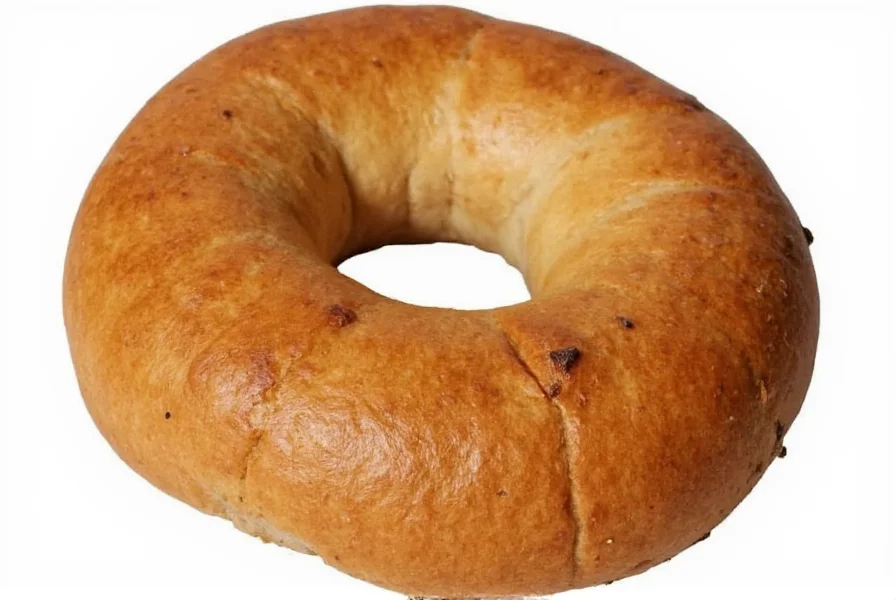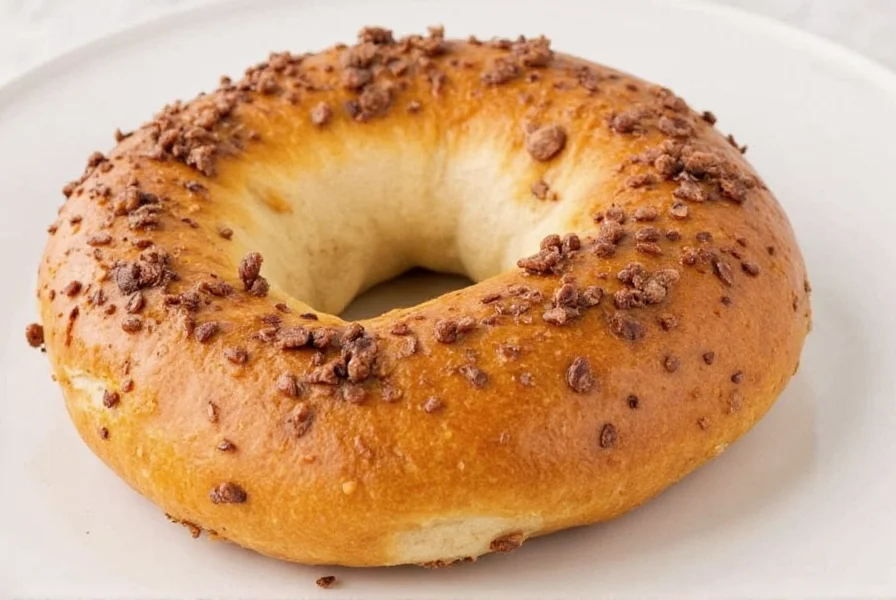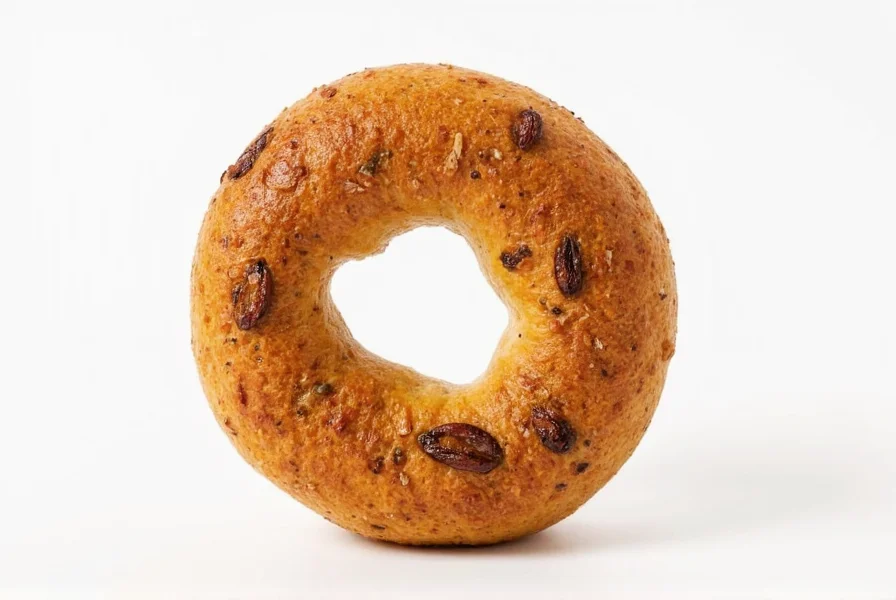When tracking your daily nutrition, understanding the precise calorie content of your favorite breakfast items is essential. Cinnamon raisin bagels offer a sweet twist on the classic bagel but come with slightly higher calories than plain varieties due to added sugars from both the raisins and sweetened dough.
Nutritional Breakdown of Cinnamon Raisin Bagels
While calories are important, examining the complete nutritional profile provides better context for making informed dietary choices. A typical medium cinnamon raisin bagel (about 3.5 ounces or 100g) generally contains:
| Nutrient | Amount | % Daily Value* |
|---|---|---|
| Calories | 320 | 16% |
| Total Fat | 1.5g | 2% |
| Sodium | 480mg | 21% |
| Total Carbohydrates | 65g | 24% |
| Dietary Fiber | 2g | 7% |
| Sugars | 12g | - |
| Protein | 10g | 20% |
*Percent Daily Values are based on a 2,000 calorie diet. Individual values may vary.
Factors That Affect Cinnamon Raisin Bagel Calories
Several variables influence the exact calorie count in your cinnamon raisin bagel:
Size Matters Most
The single biggest factor is size. Bagel sizes range dramatically:
- Mini bagel (2 oz/56g): Approximately 160 calories
- Standard bagel (3.5 oz/100g): 290-350 calories
- Gourmet bagel (6+ oz/170g): 450-550 calories
Brand Variations in cinnamon raisin bagel calories
Different bakeries and chains have unique recipes that affect nutritional content:
- Einstein Bros: 330 calories for a classic cinnamon raisin bagel
- Bruegger's: 310 calories per medium bagel
- Panera Bread: 330 calories for a classic size
- Thomas' frozen bagels: 290 calories per serving
Homemade vs. Store-Bought cinnamon raisin bagel nutrition facts
When you make bagels at home, you control the ingredients. Commercial versions often contain additional sweeteners and preservatives that increase calorie content compared to simpler homemade recipes. A basic homemade cinnamon raisin bagel might contain 20-30 fewer calories than store-bought equivalents.

How Cinnamon Raisin Compares to Other Bagel Flavors
Understanding how cinnamon raisin bagel calories compare to other popular varieties helps put the numbers in perspective:
- Plain bagel: 270-310 calories (typically 20-40 calories less than cinnamon raisin)
- Everything bagel: 280-320 calories (similar to cinnamon raisin)
- Blueberry bagel: 310-340 calories (comparable to cinnamon raisin)
- Sesame bagel: 290-330 calories
- Whole wheat bagel: 260-300 calories (usually lowest calorie option)
The added sugars from both the raisins and the sweetened dough account for the slightly higher calorie count in cinnamon raisin varieties compared to plain or whole wheat options.
Health Considerations for Cinnamon Raisin Bagel Nutrition
While enjoying a cinnamon raisin bagel occasionally fits within a balanced diet, regular consumption requires consideration of several nutritional factors:
Carbohydrate Content and Blood Sugar Impact
With approximately 65g of carbohydrates per standard bagel, cinnamon raisin varieties can significantly impact blood sugar levels. The combination of refined flour and added sugars creates a higher glycemic index than whole grain alternatives.
Sodium Levels in Commercial Bagels
Many commercial bagels contain surprisingly high sodium levels (around 480mg per bagel), which contributes to nearly 20% of the recommended daily limit. This factor matters particularly for individuals monitoring sodium intake.
Fiber Content Analysis
Most cinnamon raisin bagels provide only 2g of dietary fiber, which is relatively low considering the carbohydrate content. Higher fiber options like whole wheat bagels (typically 4-5g of fiber) offer better nutritional value for similar calorie counts.

Making Healthier Choices with Cinnamon Raisin Bagels
You don't need to eliminate bagels from your diet entirely. Consider these practical strategies for enjoying cinnamon raisin bagels while managing calorie intake:
Portion Control Techniques
Split your bagel in half to automatically reduce calorie intake by 50%. This simple adjustment brings the calorie count down to a more moderate 150-175 calories while still satisfying your craving.
Smart Topping Selections
The toppings you choose dramatically affect the overall nutritional profile. Instead of high-calorie cream cheese (about 50 calories per tablespoon), try these lighter alternatives:
- Light cream cheese (35 calories per tablespoon)
- Almond butter (90-100 calories per tablespoon)
- Avocado (50 calories per 1/4 fruit)
- Low-fat cottage cheese (25 calories per tablespoon)
Frequency Management
Consider cinnamon raisin bagels an occasional treat rather than a daily staple. Rotating with lower-calorie options like whole wheat or plain bagels creates better nutritional balance throughout the week.
Reading Nutrition Labels for Accurate Cinnamon Raisin Bagel Calories
When purchasing pre-packaged bagels, always check the nutrition facts panel for precise information. Pay attention to:
- Serving size (often listed as "1 bagel" but may be smaller than you expect)
- Total calories per serving
- Added sugars content
- Fiber content
Many consumers mistakenly assume the entire package contains one serving when it may actually contain 1.5 or 2 servings, leading to unintentional calorie overconsumption.
Frequently Asked Questions
How many calories in a Thomas' cinnamon raisin bagel?
A single Thomas' cinnamon raisin bagel (66g) contains 290 calories. This is slightly lower than many bakery-style bagels due to the smaller size and commercial recipe formulation.
Are cinnamon raisin bagels higher in calories than plain bagels?
Yes, cinnamon raisin bagels typically contain 20-40 more calories than plain bagels of the same size. The additional calories come from added sugars in both the raisins and the sweetened dough used in cinnamon raisin varieties.
How can I reduce the calorie count of a cinnamon raisin bagel?
To reduce calories, split your bagel in half (cutting calories by 50%), choose light toppings like avocado or low-fat cottage cheese instead of regular cream cheese, and select smaller-sized bagels when available. Opting for whole wheat cinnamon raisin varieties can also improve nutritional value for similar calorie counts.
Do homemade cinnamon raisin bagels have fewer calories than store-bought?
Homemade cinnamon raisin bagels often contain 20-30 fewer calories than commercial varieties because you control the ingredients. Store-bought versions frequently include additional sweeteners, preservatives, and higher fat content that increase calorie counts compared to simpler homemade recipes using basic ingredients.
How many calories in a cinnamon raisin bagel from Einstein Bros?
A classic cinnamon raisin bagel from Einstein Bros contains 330 calories. Their larger gourmet size would contain approximately 480 calories. Always check current nutritional information as recipes may change over time.











 浙公网安备
33010002000092号
浙公网安备
33010002000092号 浙B2-20120091-4
浙B2-20120091-4